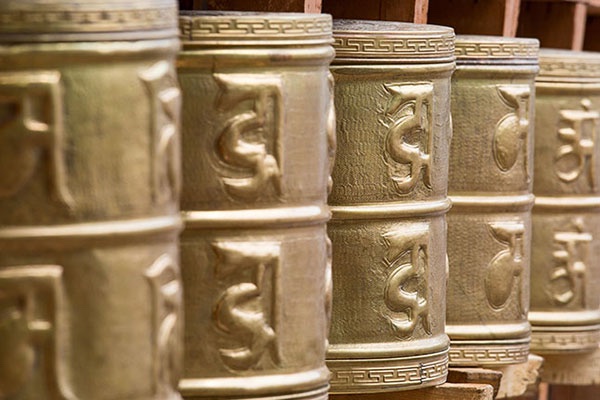Karma in Buddhism

Karma as a law and a way of life was prevalent in ancient India even before Buddha came in. When Buddha came in, facts like reason of inequality, blessed and curse births, physical deformity etc crossed his mind. He started questioning the sufferings of the people around him. He concluded that this suffering is either the result of some wrong deeds from the past or it is a pure accident. Now, it was not acceptable for a sensible person to accept the reason of his suffering as pure accident.
Whatever thou likest not for thine own self, for any person else, too, like it not.
- Dhammapada, Wisdom of Buddha.
Karma and Lord Buddha
Lord Buddha was taken aback by the sufferings of mankind. After he received his enlightenment, he had answers to his most difficult questions. He said that all human beings have their own karma. It is the deed of their past that makes the difference between the fortunate and the misfortunes. According to Buddhism, karma along with the other reasons as heredity, nature, nurture etc are the contributors to the fate of human beings in their present life.
Both Hinduism and Buddhism believe in karma. Like Hinduism, Buddhism also believes in the fact that negative karma needs to be neutralized to decrease the sufferings in the future. Lord Buddha has said that, once an action or a deed is performed, it never gets lost. It stays and comes back in the future as a result. Buddhism not only believes the fact that past actions control the present, they also believe that present actions also shape our present.
Buddhism believes in reincarnations too. Therefore, it is said that a person might not understand his suffering in his present life and might not relate it to any wrong deed they have committed that they remember, but they could be just paying for the sins and negative karma of their past births.
Sources:
- The Ancient Science and Art of Pranic Healing by Master Choa Kok Sui
